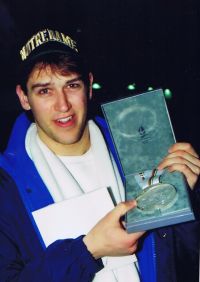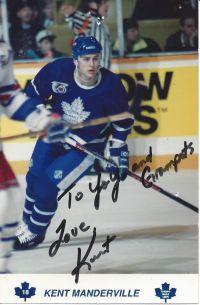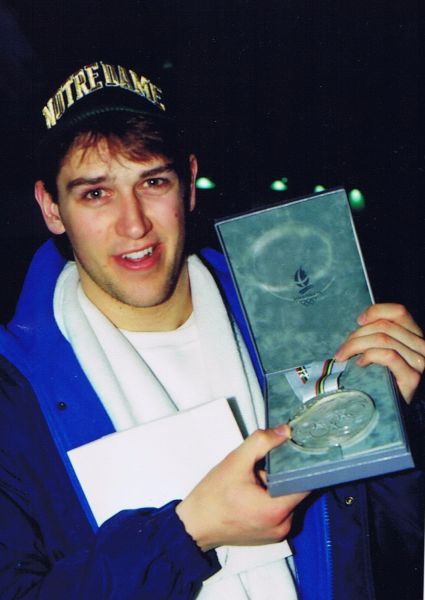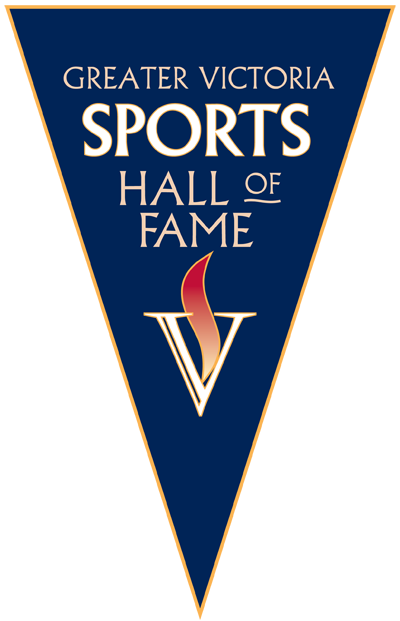The spark which led Kent Manderville to a National Hockey League career began in Redwater, Alberta, but the flame was lit by a next-door neighbour in Victoria.
Kent was born on April 12, 1971, in Edmonton but his hockey started in Redwater, population 1,450. Growing up without a father, Kent, his mother Irene, sister Dara and brother Brad moved to Victoria when he was nine. He attended Gordon Head Elementary and Cedar Hill Junior High schools and played baseball, soccer and volleyball and participated in track and field as well as cross-country. He was on the 1983 District 2 champion Gordon Head baseball team that advanced to the Little League provincial championship.
Kent was lucky to have great minor-hockey coaches at Oak Bay, Saanich and the Racquet Club of Victoria. But his biggest break was, as a 10-year-old, to have Dr. Howie Wenger, a decorated exercise physiologist, as a Paramount Place neighbour and hockey mentor. Then, as a 12-year-old, Kent watched the Soviet Union win hockey gold at the 1984 Winter Olympics in Sarajevo and thus began his dream of playing in the NHL.
Hockey took Kent to Wilcox, Saskatchewan and the prestigious Athol Murray College of Notre Dame, then Cornell University where he was the Eastern College Athletic Conference Rookie-of-the-Year in his first year there and where he met his wife, Kim.
In 1989, Kent was drafted 24th overall by Calgary Flames. The number one pick that year was Mats Sundin by the Quebec Nordiques and, interestingly, Kent was drafted ahead of no. 53 Nicklas Lidstrom and no. 74 Sergei Fedorov by Detroit Red Wings and no. 113 Pavel Bure by the Vancouver Canucks.
Before playing a NHL game, Kent was part of the 1990 and 1991 gold-medal Canadian teams at the World Junior championships. Then, on January 2, 1992, Kent was part of a 10-player trade between the Calgary Flames and the Toronto Maple Leafs.
That was a month before the Winter Olympics in Albertville, where Kent was part of the Canadian team which won silver, losing the gold-medal game to a Unified Team of newly-formed nations from the former Soviet Union, which had dissolved weeks before the Games began on February 8.
Soon after Albertville, Kent began his NHL career with the Maple Leafs and over a 12-season, 713-game career, he scored 40 goals and had 70 assists for 110 points. He played for Toronto, Edmonton, Hartford, Carolina, Philadelphia and Pittsburgh before leaving in 2003 and played in Sweden and Finland, retiring in 2007.
After hockey, Kent completed his Cornell business degree. Transitioning to a career in wealth management, he is working towards the Chartered Financial Analyst (CFA) designation and is focused on helping current professional athletes plan their financial affairs. In addition, he has given back to hockey by coaching minor hockey for a decade and is active with Hockey Helps the Homeless charity tournaments.
SPONSORED BY LITTLE & DAVIES / INSURANCE / FINANCIAL PLANNING
If Mel Bridgman was playing in the National Hockey League today, he might be considered the prototypical power forward. Combining toughness with the ability to score - not to mention leadership qualities - the six-foot, 190 lbs centre was a valuable asset to the five teams he played for in his 14-season National Hockey League career. Bridgman was not an instant success in hockey. But his determination and pride carried him a long way and allowed him to develop quickly once he reached the junior hockey level. He set a Victoria Cougars record with 157 points in 1974-75, prompting the Philadelphia Flyers to pick him No.1 overall in the NHL draft. Arriving in the Broad Street Bullies era in Philly, the burly centre was an instant hit. His aggressive play landed him in the penalty box often but also helped notch a few extra goals. The Flyers reached the Stanley Cup final in his rookie season and again in 1979-80, after the Flyers, led by team captain Mel, went 35 games unbeaten to start the season. Bridgman enjoyed his best offensive season in Calgary, scoring 75 points in 1981- 82. He had six 20-goal seasons, retiring in 1989 with a total of 252 goals, 449 assists and 1,625 penalty minutes in 977 career regular season games. Then added 67 playoff points in 125 games. Recording yet another first. In 1992 Bridgman was named general manager of the expansion Ottawa Senators.














